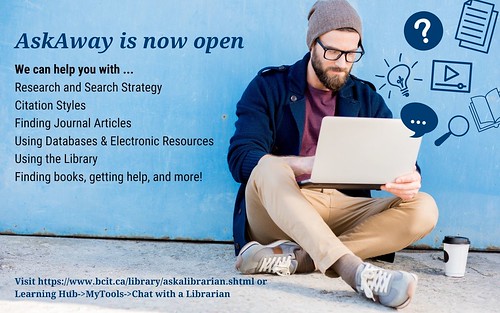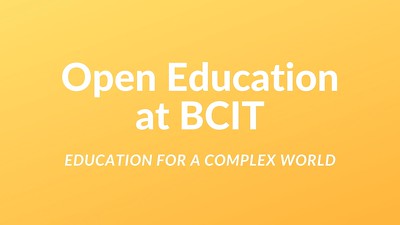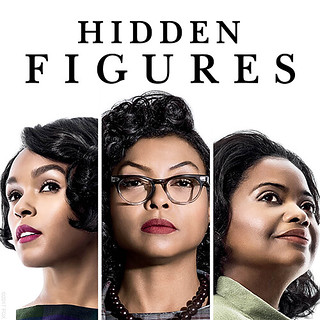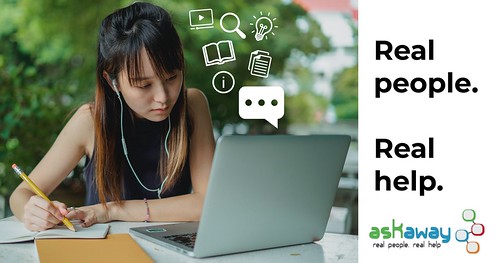 All BCIT libraries will be closed on Monday, September 19th to mourn Queen Elizabeth II on the day of her state funeral. The ehPod will remain open 24/7.
All BCIT libraries will be closed on Monday, September 19th to mourn Queen Elizabeth II on the day of her state funeral. The ehPod will remain open 24/7.
Science Literacy Week 2022, Sept 19-23
 This year’s theme is mathematics.
This year’s theme is mathematics.
Join us from Monday, Sept 19 to Friday, Sept 23rd for a week long celebration of science at BCIT Library.

During SLW, we will be posting a math puzzle daily to the Loop and to our Instagram (bcitlib). Enter for a chance to win a fabulous prize!

For more info and some great resources visit our Science Literacy Week LibGuide.
BCIT Library Newsletter for the School of Business, September 2022
by Deirdre Grace and Jeffery Verbeem
Welcome back!
We want to let you know that we are a resource for you and your students as we head into the fall term. We can provide introductory library instruction classes, more in-depth sessions tailored to specific research-based assignments, a short run-down on one specific database, or a quick library tour.
Contact us if you would like to arrange a library session for your students.
 Deirdre_Grace@bcit.ca.
Deirdre_Grace@bcit.ca.
Broadcast, Digital Arts, Marketing and Operations Management
 Jeffery_Verbeem@bcit.ca
Jeffery_Verbeem@bcit.ca
Business Administration, HR, Finance
Services

Photo by Mimi Thian on Unsplash
Peer Tutoring – The Learning Commons has hired 12 business tutors for the 2022/23 school year. Peer tutoring resumes for the fall term on Wednesday, September 21st.
Writing Support – Free writing support is available for students through WriteAway, an online service staffed by BC post secondary student tutors, and BCIT’s Writing Centre.
Check the Learning Commons site for more information on these services.
An online guide is now available to help with APA citation of sources from our business databases. This compliments our general APA 7 Reference Examples guide.
Resources

Changes to Vividata
If you use Vividata in your courses you will want to know about the following changes:
- All brand level data has been removed from the platform for educational users.
- Use of Vividata studies or analysis by students as part of a paid or unpaid internship is not permitted in any form.
- Any culminating projects leveraging Vividata studies or variables must be reviewed by Vividata prior to work commencing.
- These changes have been made by Vividata for all subscribers who hold an educational license.
Hidden Gems
IBISWorld– as well as up to date, comprehensive industry reports, IBIS World also contains Business Environment Profiles for Canada on selected topics in Consumer Behaviour, Demographics, Domestic Economy, Financial Markets and more
Euromonitor Whitepapers – Euromonitor, the publisher of Passport, produces downloadable reports including: 2022 Global Consumer Types; Global Economic Forecasts, Q2 2022; Top 100 Cities Destinations Index 2021
Statista’s Global Survey – Statista makes their worldwide survey available for subscribers to manipulate different country and territory data sets, topics, and target groups. Select the Global Survey link from the top left of the screen.
Audiobooks – The O’Reilly Online Learning and Skillsoft platforms offer an extensive library of online audio books for business and IT.
Starting off on the Right Foot – Implementing effective instructional strategies. Part of the LTC’s job aid collection.
Events

Photo by Evangeline Shaw on Unsplash
Science Literacy Week is September 19-25 and this year’s theme is mathematics. We’ll be running a contest on our social channels and the Loop, posting a math puzzle daily – solve the puzzle and enter for a chance to win.
The Human Library at BCIT – we mentioned this in our June newsletter – due to circumstances beyond our control we need to postpone the event, but stay tuned as we are hoping to move forward in early 2023.
Projects
Business Research Modules – We are considering the development of Library instructional modules that focus on the needs of the SoB. These modules could either take the form of badges / MOOCs or micro-credentials, and at this stage, we are
looking at topics like academic integrity and business research fundamentals. We would appreciate working with willing volunteers in the SoB who would be willing to provide some guidance on the sort of material that would get uptake in the school and to provide feedback on the modules. The time commitment would be minimal. If this sounds like something you would be willing to help out with, please reach out to Deirdre or Jeff.
New Titles
Analytics & Technology
Automated Machine Learning for Business / Kai R. Larsen and Daniel S. Becker
Data means business : level up your organisation to adapt, evolve and scale in an ever-changing world / Jason Foster and Barry Green.
Intended consequences : how to build market-leading companies with responsible innovation / Hemant Taneja with Kevin Maney.
Introduction to business analytics 2nd ed / Majid Nabavi, David L. Olson, Wesley S. Boyce.
Radically human : how new technology is transforming business and shaping our future [audiobook] / Paul R. Daugherty, H. James Wilson.
Entrepreneurship
Angels and Entrepreneurs : A Lifestyle Formula for Starting Your Own Business and Riding the Rollercoaster of Entrepreneurship [audiobook] / Bob Schlegel.
Boss it : control your time, your income and your life / Carl Reader.
Build the damn thing : how to start a successful business if you’re not a rich white guy / Kathryn Finney.
Intrapreneurship : managing ideas within your organization / Kevin C. Desouza.
The YouTube formula : how anyone can unlock the algorithm to drive views, build an audience, and grow revenue [audiobook] / Derral Eves.
Finance
Advice for a Successful Career in the Accounting Profession : How to Make Your Assets Greatly Exceed Your Liabilities / Jerry Maginnis.
Analysing Financial Performance : Using Integrated Ratio Analysis / Nic La Rosa
Audit defense : a management audit readiness guide / Ed Danter.
Machine learning for auditors : automating fraud investigations through artificial intelligence / Maris Sekar.
Principles of Sustainable Finance / Dirk Schoenmaker and Willem Schramade
HR
Excel 2019 for human resource management statistics : a guide to solving practical problems / Thomas J. Quirk, Julie Palmer-Schuyler.
HBR’s 10 Must Reads on Reinventing HR / Harvard Business Review, Marcus Buckingham, Reid Hoffman, Ram Charan, and Peter Cappelli
Human Resource Policy : Connecting Strategy with Real-World Practice / Mike Fazey
Leadership Strategies for the Hybrid Workforce : Best Practices for Fostering Employee Safety and Significance. / Matthew Ohlson
Leadership & Change
The act of leadership : a playbook for leading with humility, clarity and purpose [audiobook] / Dan Haesler.
Amplifying Indigenous Voices in Business : Indigenization, Reconciliation, and Entrepreneurship / Priscilla Omulo
Business sustainability factors of performance, risk, and disclosure / Zabihollah Rezaee.
Creating Gender-Inclusive Organizations : Lessons from Research and Practice / Ellen Ernst Kossek and Kyung Hee Lee
Cultural Dynamics and Leadership : An Interpretive Approach / Nathan W. Harter.
The human element : overcoming the resistance that awaits new ideas / Loran Nordgren and David Schonthal.
Win from within : build organizational culture for competitive advantage [audiobook] / James Heskett
Marketing
Advanced introduction to advertising / Patrick de Pelsmacker
Brands on a mission : how to achieve social impact and business growth through purpose / Myriam Sidibe.
Converted: the data driven way to win customers’ hearts / Neil Hoyne
How People Buy Online : the Psychology Behind Consumer Behaviour / Seema Gupta.
Products for conscious consumers: developing, marketing and selling ethical products / Kemi Ogunyemi
User experience research: discover what customers really want / Marty Gage & Spencer Murrell
Why design matters : conversations with the world’s most creative people / Debbie Millman
Tourism
Contemporary tourist behaviour / David Bowen
The Economics of tourism destinations / Norbert Vanhove
Promoting social and cultural equity in the tourism sector / Priscilla Cembranel, J.R.R. Soares, Andre Perinotto
Wellness & Success
101 tips for improving your business communication / Edward Barr.
Arrive and thrive : 7 impactful practices for women navigating leadership / Susan MacKenty Brady, Janet Foutty, and Lynn Perry Wooten.
The art of being indispensable at work : win influence, beat overcommitment, and get the right things done / Bruce Tulgan.
Everyday Bias : Identifying and Navigating Unconscious Judgments in Our Daily Lives / Howard J. Ross.
Start with a win : tools and lessons to create personal and business success / Adam Contos
The Work-Life Balance Myth : Rethinking Your Optimal Balance for Success / by David J. Mcneff
Miscellaneous
An economist goes to the game : how to throw away $580 million and other surprising insights from the economics of sports / Paul Oyer.
Can legal weed win? : the blunt realities of Cannabis economics/ Robin Goldstein and Daniel Sumner
Long-life learning : preparing for jobs that don’t even exist yet / Michelle R. Weise
Meltdown : what plane crashes, oil spills, and dumb business decisions can teach us about how to succeed at work and at home / by Chris Clearfield and András Tilcsik
Music copyright : an essential guide for the digital age / Casey Rae
We are grateful to work and learn on the traditional and unceded territory of the Coast Salish Peoples, including the territories of the xʷməθkwəy̓əm (Musqueam), Səlí? lwətaʔ/Selilwitulh (Tsleil- Waututh) and Skwxwú7mesh (Squamish) Nations.
AskAway Hours of Service, Fall 2022
AskAway Opens for Fall Service:
Tuesday, September 20th – Friday, December 9th, 2022
Tuesday, September 20th – Friday, December 9th
Monday-Thursday | 9am – 9pm
Friday | 9am – 5pm
Saturday | 11am – 5pm
Sunday | 10am – 9pm
BCIT Librarians & Lib Techs will be Online
Monday | 10am – 1pm
Tuesday | 11am – 12 noon
Thursday | 11am – 12 noon, 5pm – 7pm
AskAway will be closed on the following Stat Holidays
Friday, September 30, 2022
Monday, October 10, 2022
Friday, November 11, 2022
Visit: https://www.bcit.ca/library/library-contacts/ask-a-librarian/
AskAway and WriteAway Closed for Summer Break
AskAway Chat with A Librarian Service And WriteAway
Closed for Summer Break:
Saturday, August 13th – Sunday, September 18th, 2022
During the AskAway intersession break, please direct any research assistance requests to :
- Directly contacting librarians: https://www.bcit.ca/library/library-contacts/librarians/
- Sending an email to ebrarian@bcit.ca
Thanks Reference AskAway Team for great service 2021-2022!
BCIT Library provided 646 BCIT Chat Sessions with students and instructors for total 127 hours during Sept 2021-Aug 2022.
Most frequent types of questions:
- 129 research
- 95 ready reference
- 89 e-resources access
- 81 directional
- 66 referred to specific Librarian/Library
- 59 citation
What’s New? Piloting BCIT Proactive Chat in the Fall 2022
Proactive chat is a timed widget that pops-up on a webpage, inviting the user to chat; research and similar pilot programs have shown that this feature is successful at reaching new users at their point-of-need. Three of the four participating pilot libraries saw a 43-50% increase in usage due to proactive chat; this was considered a successful increase and demonstrates how proactive chat can be used to reach new patrons and increase the visibility of the service
BCIT Proactive Chat Pilot will be limited to the LibGuide A-Z List, and the web pages: Library Services for Students, Library Services for Faculty, Citation Styles and Research Assistance for Student.
AskAway Fall 2022 Hours of Service
Monday, September 19th – Friday, December 9th, 2022
Monday-Thursday | 9am – 9pm
Friday | 9am – 5pm
Saturday | 11am – 5pm
Sunday | 10am – 9pm
BCIT Librarians & Lib Techs will be Online
Monday | 10am – 1 pm
Tuesday | 11am – 12 noon
Thursday | 11am – 12 noon, 5 – 7 pm
AskAway will be closed on the following Stat Holidays
Friday, September 30, 2022
Monday, October 10, 2022
Friday, November 11, 2022
Service Closed from Saturday, December 10 – Sunday, January 15, 2023
Civic Holiday, August, 1, 2022 – Library Closure

All BCIT libraries will be closed Monday, August 1st for the Civic Holiday. The ehPod will remain open from 8am-7pm. Sorry for any inconveniences this may cause.
Canada Day, July 1, 2022 – Library Closure

All BCIT libraries will be closed Friday, July 1st for Canada Day. The ehPod will remain open from 8am-7pm. Sorry for any inconveniences this may cause.
AskAway Service Summer 2022

AskAway service will be open Saturday, July 2nd and Sunday, July 3rd.
Dates and Hours of Service (July 4 – August 12)
Monday-Thursday | 9am – 9pm
Friday | 9am – 5pm
Saturday | 11am – 5pm
Sunday | 10am – 9pm
BCIT Librarians will be Online
Monday | 9am-10am, 4pm-5pm, 5pm-6pm
Tuesday | 1pm-2pm
Wednesday | 5pm-6pm
AskAway will be closed on the following Stat Holidays
Friday, July 1, 2022
Monday, Aug 01, 2022
AskAway Service Closed: Saturday, Aug 13, 2022 – Sunday, September 18, 2022
Great 18-min AskAway Session with a BCIT Instructor (May 24th, 2022)
BCIT Instructor: Hi – I’m looking for an ISO standard, ISO XXXXX:2018 in particular. Does the BCIT library have this?
BCIT Librarian: Welcome to Ask Away. Let me see if we have access. Is this for a class, or for your research?
BCIT Instructor: for a class and research. I am an instructor
BCIT Librarian: Good to know! If you go to the library home page there is link to our e-Resource Collection, It takes you to our A-Z listing of electronic resources/databases/articles/standards https://libguides.bcit.ca/az.php
If you click the All Database Types dropdown list… you can select Codes & Standards
we have several code sources. CSA Online usually has any of the ISO equivalents.
Are you familiar with CSA?
BCIT Instructor: I’m not. I will look at this database
BCIT Librarian: Let me try, just click the link.. then enter the iso number
Are you looking for: Standard… – Guidelines (Adopted ISO XXXXX:2018, second edition, 2018-02)
BCIT Instructor: yes I am. Yes, I have it. Thanks so much!!
BCIT Librarian: If you want, there is a ‘copy this transcript’ button in the chat to save the session text with instructions
BCIT Instructor: yes, i did. Thanks, this is very helpful.
BCIT Librarian: You’re very welcome! Thank you for using AskAway.
We hope you visit us again. Okay. Have a great evening.
BCIT AskAway Chat with A Librarian Service
Our Students Can Get Help Online with:
- research
- citations
- using the library
- finding materials
- journal databases
- troubleshooting access to library materials
- other library topics
Link to BCIT AskAway Chat: https://www.bcit.ca/library/library-contacts/ask-a-librarian/
About AskAway
AskAway is a chat reference service for BC’s post-secondary institutions.
AskAway sessions are in real-time, and are staffed by Librarians and Library Technicians from post-secondary institutions in B.C.
Successful Open Education Proposals

Open BCIT has awarded open education grants for these two projects:
- Write a book which will guide students to build an Internet of Things (IoT) project from scratch using ThingsBoard as the IoT platform and Raspberry Pi as the hardware module, Reza Vahidnia
- Develop an open learning resource on immunology with an application focus (chapters will include essential content, a case study, pre-test, H5P mini-lesson, and post-chapter review), Simon Duffy, Supipi Duffy
Congratulations to all!
Open Education Grants 2022/23
OER Development Grants (up to $5,000)
Develop openly licensed learning materials:
- make substantial revisions to existing OER (open educational resources) to better suit class subject matter and learning outcomes
- create an openly licensed learning resource in any category or format (eg. textbook, videos, manual, question or test bank)
The LTC and the Library can provide some support for funded grant projects.
These funds are usually distributed as part-time studies contracts so are subject to tax and benefits deductions.
The call for proposals will close Monday, June 13.
Open Education Course Transformation Micro-Grants ($500)
Transform a current or new course to include one or both of the following:
- ZTC (zero textbook costs): replace learning materials currently used in the course that students pay for (eg. textbooks, lab manuals, readings) with materials that are free for students (eg. OER, freely available information such as government documents, and/or BCIT Library materials)
- OEP (open education practices/pedagogy): incorporate substantive OEP into the course.
A short student survey and final report is required.
Support from the Library and the Learning and Teaching Centre is available:
- to consult with a Librarian to help with a search for OER and other free-to-use learning materials
- to consult with an Instructional Development Consultant to help determine appropriate open practices that match the subject matter and learning outcomes of the course
These funds are distributed as part-time studies contracts so are subject to tax and benefits deductions.
The call for proposals will close Monday, June 13.
- « Previous Page
- 1
- …
- 5
- 6
- 7
- 8
- 9
- …
- 47
- Next Page »


